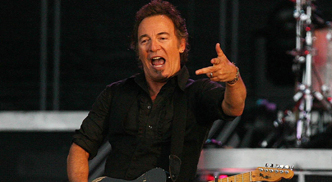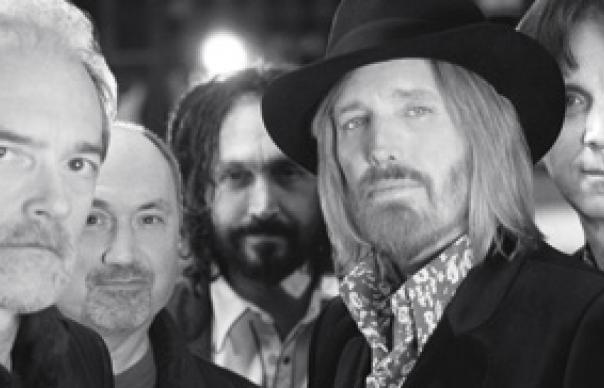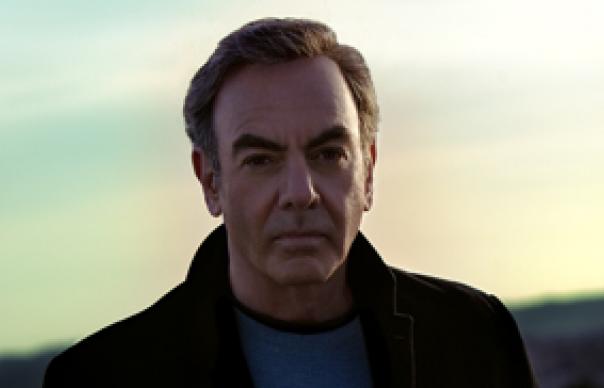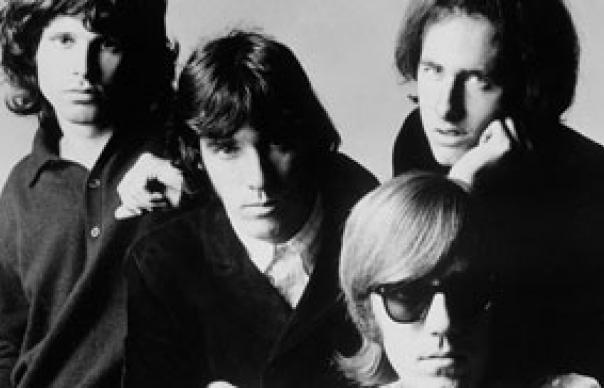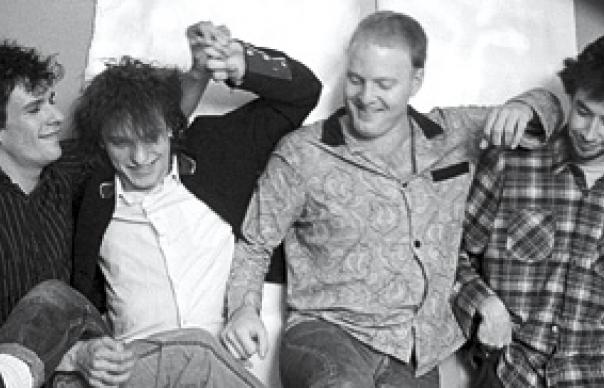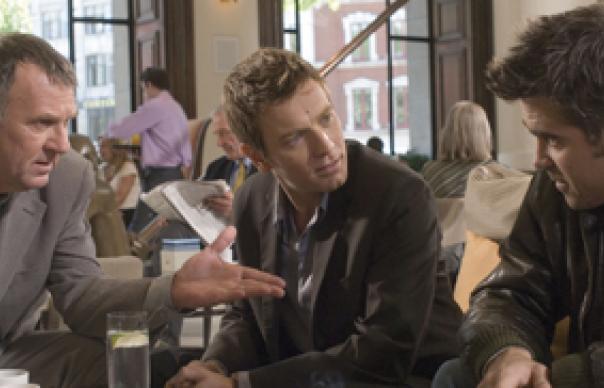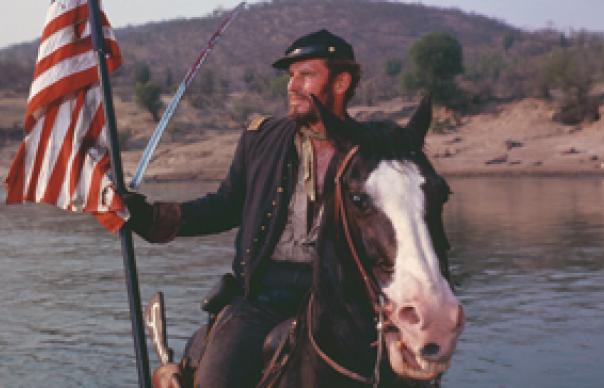UP CLOSE AND PERSONAL: PAUL WELLER
Is this your White Album?
Hah! I think it is, yeah. It’s certainly eclectic, to say the least. There’s not one track that sounds like another. The overall feeling is that I wanted to really push the boat out, man, just fucking go for it. We weren’t looking to please anyone with it, we were just doing it for ourselves. That said, I like the fact that there’s so many good, proper songs on there. It’s really refreshing.
I thought you were taking the year off?
I made a conscious decision in 2007 to take the year off. In particular, I needed to take a break from playing live. Initially I wasn’t even intending to make another record, but I started writing songs and recording demos and it all snowballed from there. And I got the core of the band – which was basically just me, Steve Cradock and producer Simon Dine – back into the studio from about May 2007 to start work on the album, and we’ve been working on it, on and off, since then. It was fairly sporadic at first, and then from September to January we’ve been full at it. The more we did, the more we wanted to do. We started going to places we’d never been musically.
You’ve always said that you’ve never got into co-writing in the past, but much of this album is co-written with friends. What changed?
Yeah, that’s true. I’ve often chatted to Bobby G[illespie] or Noel [Gallagher] about co-writing, but I always feel a bit self-conscious doing the old-fashioned thing where there’s two of you in a rehearsal room, slogging it out on acoustic guitars. But the collaboration with Graham Coxon changed my mind about that. It was more of a long-distance thing, which involved sending each other demos on tapes or CDs. One person would make changes and send back another disc, and you’d both chip away at the music. I’m much more comfortable working like that.
Did that give you a taste for co-writing with other people?
Yes, definitely. A similar thing happened with Noel [Gallagher], who came down to the studio with this loop he’d never been able to do anything with. He played the bass and the piano and then Gem [Archer, from Oasis] played guitar on top. I extemporised some vocals over the top. And then, like all songs, it started to take on a life of its own, with the big strings.
Simon Dine is credited as producer and also co-writes several tracks. Was he the big difference from your other solo work?
Definitely. He’s an old mate, we’ve known each other for a long time and we’ve done some stuff together in the past, but I’ve never co-written with him. On this album there’s about five or six tracks co-writes with Simon. Most of the things we did together involved him using a backing track – a drone or a drum loop or a sample – and I’d lay down some melodies and lyrics over the top. Then he’d take it back and cut it up, and then I’d adjust it, and then he’d do something else. I think that threw a few things up in the air. And then there were other tracks that were almost totally improvised. So it was just a different way of writing. It’s not like two people in a room with acoustic guitars trying to write a song together.
Have you been getting back into folk music?
Yeah, definitely. It’s stuff I only started listening to from the start of my solo career. You realise that there’s a whole different world out there that you know nothing about. And there’s been some great folk compilations out in recent years. That’s a definite influence. I got a guitarist called John McCusker to play 12-string on a couple of tracks – he’s a top man – and there’s a few tracks where I’m trying to write a folk classic. “Where’er You Go” is my attempt to write a modern “Danny Boy” or something.
Quite apart from the folk stuff, there’s a very heavy pastoral feel to the record…
There’s also lots of references to the elements. Because we’ve been working on it for nearly a year, it’s almost like a full cycle of the seasons. The place where we recorded it in Surrey, we always leave the door open. And I think being in the country you’re more aware of the seasons changing, much more than in the city. Even down to us actually recording the thunderstorm one day, and the peacocks and the birds singing.
You even dip into Latin American music on One Bright Star…
I’ve recently developed a bit of a thing about tango. I love that music. It’s really emotional, passionate music. And in soundchecks we often mess about with tango and bolero rhythms. Again, Simon had a backing track and I had a tune in my head and we started jamming on it. The melody is quite influenced by an Algerian singer called Souad Massi, who’s been a huge inspiration recently.
Who’s that on the spoken word track, “God”?
That was Aziz Ibrahim, who played guitar with Ian Brown for a time. He’s just a mate who came down to the studio one day. After we’d written a load of songs, Steve Cradock suggested we do a spoken-word track, so I dug out these old lyrics I’d written and asked Aziz to read them. The fact that he’s Muslim obviously gives it another dimension.
Most of the tracks seem to segue together – the last track on the album even loops back to join in with the introduction to the opening track, a bit like Finnegan’s Wake…
Ha ha! Someone else said that this album was a bit like getting into a really nice novel. I think that’s a nice analogy. I really wanted to make the album flow, to have all the tracks flowing into each other. Also in these days where people are into downloading one track or two tracks, I just liked the idea that people would want to hear the whole record as a complete piece.
INTERVIEW: JOHN LEWIS




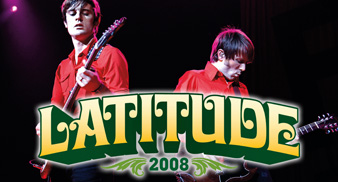




 Bono looks tired. There are creases round his eyes when he removes his tinted glasses, creases that weren’t there three decades ago. Tonight is an auspicious anniversary in the U2 camp. On May 18, 1978, Paul McGuinness became U2’s manager and de facto fifth member, laying a crucial foundation for U2‘s – and indeed Bono’s – world domination plans.
Bono looks tired. There are creases round his eyes when he removes his tinted glasses, creases that weren’t there three decades ago. Tonight is an auspicious anniversary in the U2 camp. On May 18, 1978, Paul McGuinness became U2’s manager and de facto fifth member, laying a crucial foundation for U2‘s – and indeed Bono’s – world domination plans.